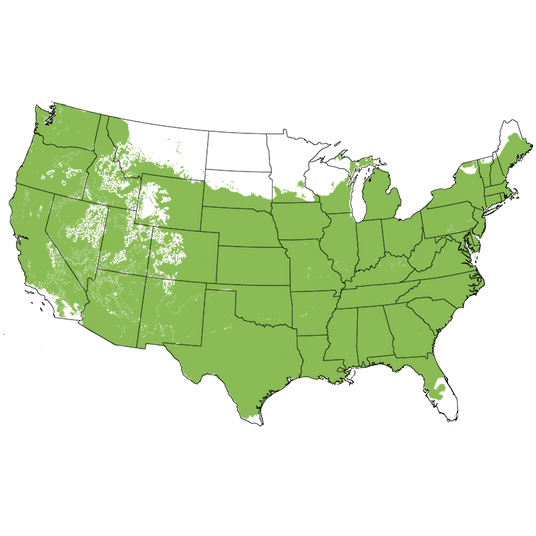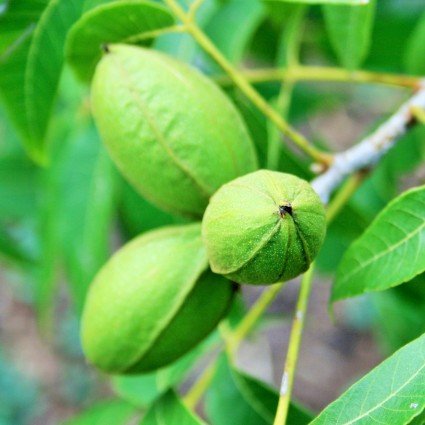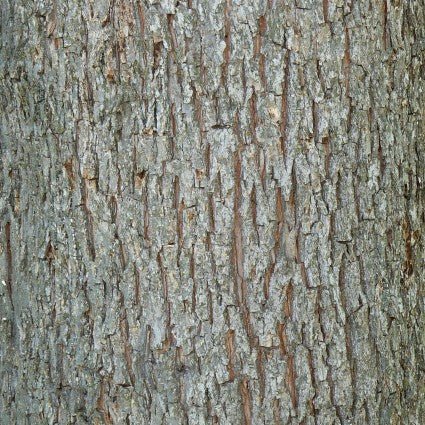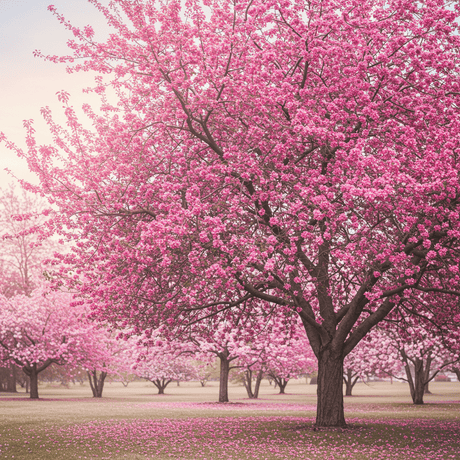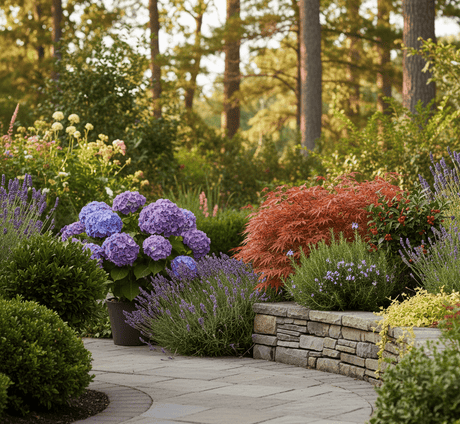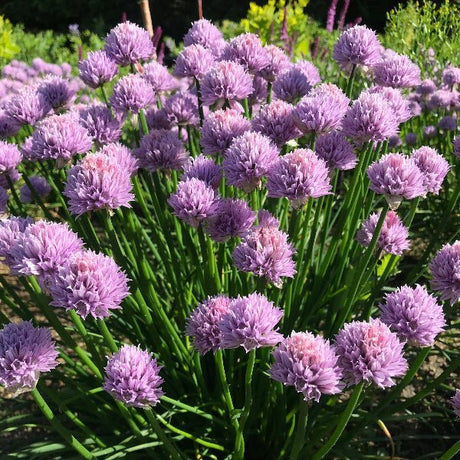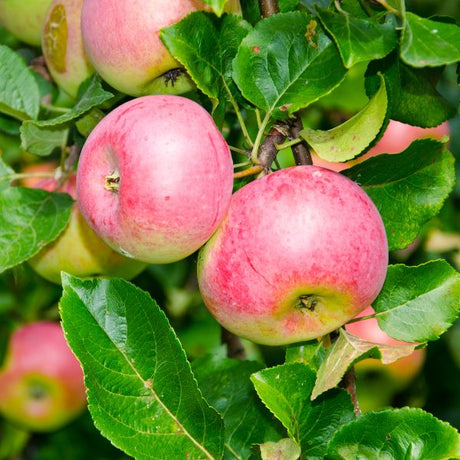Hardy Pecan Tree
Carya illinoinensis
Plant Sentry™
Plant Sentry™

Plant Sentry™ Protected
Your order is protected by our compliance system that:
- Prevents restricted plants from shipping to your state
- Ensures plants meet your state's agricultural requirements
- Protects gardens from invasive pests and diseases
Delivery and Shipping
Delivery and Shipping
Delivery and Shipping
Fast, Safe Plant Delivery
Ships in 3-4 business days • Tracking provided • Weather protected
| Under $50 | $9.99 |
| $50 - $99.99 | $14.99 |
| $100 - $149.99 | $16.99 |
| $150 - $198.99 | $24.99 |
| $199+ | FREE |
✓ Zone-specific timing • ✓ Professional packaging • ✓ Health guarantee
Understanding Plant Options
Nature Hills offers plants in two main formats:
- Container Plants: Grown in pots with soil, sized by container volume and plant age
- Bare Root Plants: Dormant plants without soil, sized by height measurements
Container Plant Sizes
Container sizes indicate plant age and growing capacity rather than liquid volume equivalents. Our containers follow industry-standard nursery "trade gallon" specifications, which differ from standard liquid gallon measurements.
Young Plants (6 months to 18 months old)
| Container Size | Actual Volume | Metric Equivalent |
|---|---|---|
| 2" x 2" x 3" | 0.18 - 0.21 dry quarts | 0.20 - 0.23 dry liters |
| 4" Container | 0.31 - 0.87 dry quarts | 0.35 - 0.96 dry liters |
| 4.5" Container | 0.65 dry quarts | 0.72 dry liters |
| 6" Container | 1.4 dry quarts | 1.59 dry liters |
| 1 Quart | 1 dry quart | 1.1 dry liters |
| 5.5" Container | 1.89 dry quarts | 2.08 dry liters |
Established Plants (18 months to 2.5 years old)
| Container Size | Actual Volume | Metric Equivalent |
|---|---|---|
| 2 Quart | 2 dry quarts | 2.2 dry liters |
| #1 Container | 2.26 - 3.73 dry quarts | 2.49 - 4.11 dry liters |
| 5" x 5" x 12" | 3.5 - 4.3 dry quarts | 3.85 - 4.74 dry liters |
Mature Plants (2-4 years old)
| Container Size | Actual Volume | Metric Equivalent |
|---|---|---|
| #2 Container | 1.19 - 1.76 dry gallons | 5.24 - 7.75 dry liters |
| #3 Container | 2.15 - 2.76 dry gallons | 8.14 - 12.16 dry liters |
Large Plants (3-5 years old)
| Container Size | Actual Volume | Metric Equivalent |
|---|---|---|
| #5 Container | 2.92 - 4.62 dry gallons | 12.86 - 20.35 dry liters |
| #6 Container | 5.25 - 6.01 dry gallons | 23.12 - 26.42 dry liters |
| #7 Container | 5.98 - 6.53 dry gallons | 26.34 - 28.76 dry liters |
Bare Root Plants
Bare root plants are sold by height from the root system to the top of the plant. Plants may exceed minimum height requirements.
Common Sizes:
- Trees: 1 foot, 2 feet, 3 feet, 4 feet, 5 feet, 6 feet
- Shrubs & Perennials: 1 foot, 18 inches, 2 feet
Important Notes
Container Volume Specifications
- Trade Gallon Standard: Our containers follow industry-standard "trade gallon" specifications established by the American National Standards Institute (ANSI Z60.1) for nursery stock
- Volume Variations: Actual soil volume may vary due to plant root systems and growing medium settlement
- Age Indicators: Container size primarily indicates plant age and maturity rather than liquid volume equivalents
Growing Conditions
- Plant size can vary based on variety and growing conditions
- Container size helps indicate plant maturity and establishment level
- Larger containers generally mean more established root systems and faster landscape establishment
Seasonal Availability
- Bare root plants are available seasonally when dormant
- Container plants are available throughout the growing season
- Specific varieties may have limited availability in certain sizes
Questions?
For questions about specific plant sizes or availability, please contact our plant experts who can help you choose the right size for your landscape needs.

Plant Sentry™ Protected
Your order is protected by our compliance system that:
- Prevents restricted plants from shipping to your state
- Ensures plants meet your state's agricultural requirements
- Protects gardens from invasive pests and diseases
Plant Profile & Growing Essentials
Cold hardy, Native, Flowering, Edible, Ornamental Berries/Fruit, Thornless, Drought resistant, Heat Tolerant, Fragrant, and Fast-growing
-
Botanical Name
-
Height
-
Width
-
Growing Zones
-
Sunlight
-
Growth RateModerate
-
Flower Color
-
Leaf Color
-
Fall Color
-
NativeYes
-
Pollinator FriendlyYes
-
Pollinator Required
-
Bloom PeriodEarly Spring
-
Does Not Ship ToAL, AK, AZ, AR, CA, CO, HI, ID, KS, LA, MS, MT, NV, NM, ND, OK, OR, SD, TX, UT, WA
The Hardy Pecan (Carya illinoinensis) is a large native shade tree known for its adaptability to cold climates, its aesthetic beauty, and the production of the popular Pecan nut that is both delicious and nutritious. This tree is a native of the United States primarily found in the Mississippi River Valley regions and its tributaries. It is ideally suited to larger landscapes and commercial plantings.
Greenish-yellow male flowers are pendulous catkins that appear in the early spring. In the growing season, the lovely, pinnate compound leaves are comprised of medium-green leaflets. The leaves eventually turn a harvest gold color for fall, known to lose its foliage, the shade value of this tree continues late into the season until the nuts begin to ripen!
While in nature a pollinator isn't required because there are plenty of these trees around, in your landscape, a second tree will increase pollination and improve your harvest of Pecans to enjoy! Pecans fall into two categories, either Type I or Type II, but because of the native variability of these trees it is difficult to know which the Hardy Pecan is. For the best nut production, you'll want to plant two of them and consider adding another variety.
Ornamental features include the attractive bark, which is a slate-grey color and has a lightly fissured texture. Hardy Pecan is a long-lived tree with a life span of well over 75 years! Though an abundant producer, please note that it can take 7 to 15 years to produce nuts. Hardy throughout USDA growing zones 5 through 9, these trees are remarkable for their cold resistance and heat tolerance.
Planting and Application:
This tree adds a delicate texture and lush shade because of the large, rounded canopy. Hardy Pecan is a wonderful choice for residential plantings as well as parks, golf courses, business complexes or anywhere a large shade tree is desired. The Hardy Pecan is truly a multipurpose windbreak or shelterbelt tree. It will be an attractive shade tree for your home, the city park or planted in an orchard with fruit trees to enjoy the eventual added benefit of a delicious fall harvest.
This is the ideal shade tree for the larger yard with a huge added benefit of edible nuts! You'll love the edible landscaping possibilities these lovely nut trees provide! Plant it along creek beds as a welcome addition to a food forest. This native tree has admirers in the natural world and provides habitat to many species of wildlife and Host Plant to multiple varieties of moth larvae.
American Indians are known to have cultivated pecans as far back as the 1500s. The Spanish took the Pecan to Europe in the 16th century. Thomas Jefferson recognized the value of the "Illinois Nut" and planted many at his home at Monticello in the 1700s. He even shared them with friends like George Washington.
Despite all of the early interest, it would not be until the late 1800s that commercial production of pecans began in the United States. They are rich in antioxidants and are reported to have many possible health benefits.
The tree produces the classic, thin-shelled pecan that is popular throughout the world. The nuts have a thin husk and split into four sections when ripe in September through November.
Pecans are a tasty snack and versatile for cooking in a variety of dishes. Even the wood of the tree is valued for making furniture or as fuel that adds smoked flavor to meats. Don't forget the All-American Pecan Pie that adorns Holiday tables across the country.
- Large Deciduous Shade Tree With Green Compound Leaves
- Largest of the Hickories!
- Long-Lived Stately Native Tree
- Rich Flavored Edible Nuts
- Beautiful Yellow Fall Color
- Historic & Wildlife Importance
- Needs Pollination Partner - Plant Multiple Trees To Increase Harvest
#ProPlantTips for Care:
Give Pecan Trees a spot in full sun for best results. When you do your tree planting, plan to give a moderate amount of regular water during the first season and consistent moisture in a site with rich, well-drained soils. Provide young trees with a thick layer of mulch over the root system to help during drought, but these trees can be drought-tolerant once established. Prune if needed when dormant.
Pecans like humid conditions with an extended warm late season to ripen the nuts. Although it will grow into a beautiful tree, its production may be limited in coastal areas like western Washington state, Western Oregon, or the upper reaches of Zone 5.
- Full Sun Trees
- Well-Drained Soil
- Moderate Yet Regular Moisture
- Appreciates Mulched Beds
- Prune When Dormant
- Drought-Tolerant & Scab-Resistant
Hardy Pecan is a tree that never stops giving. The native Hardy Pecan Tree provides shade and a bountiful harvest awaits you when you order one of these wonderful southern landmark trees! Now shipping from Nature Hills Nursery! Order today and get started with this beautiful, historical, interesting, and oh-so-useful native Hardy Pecan!
